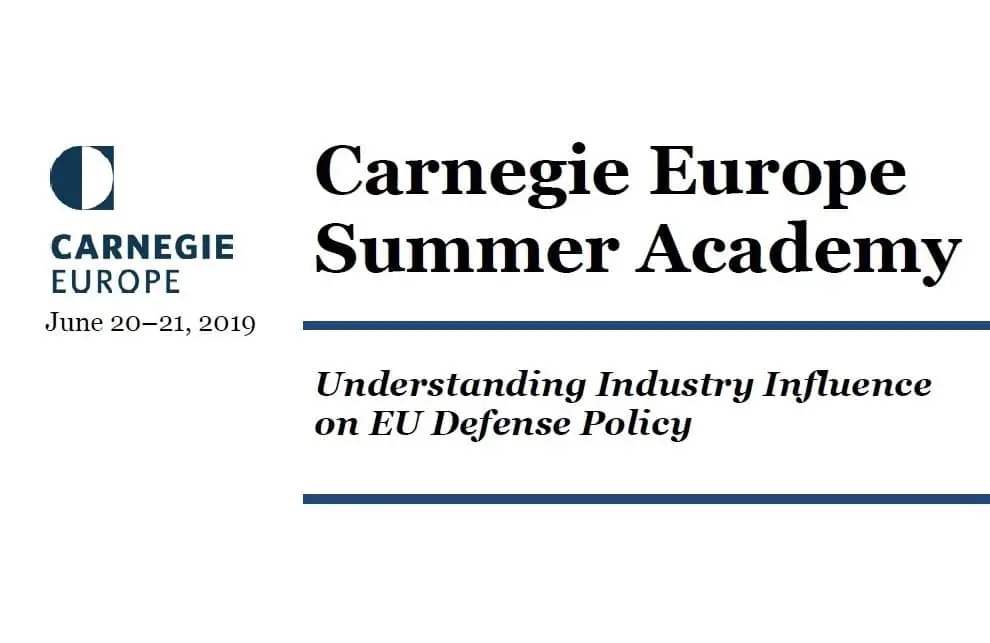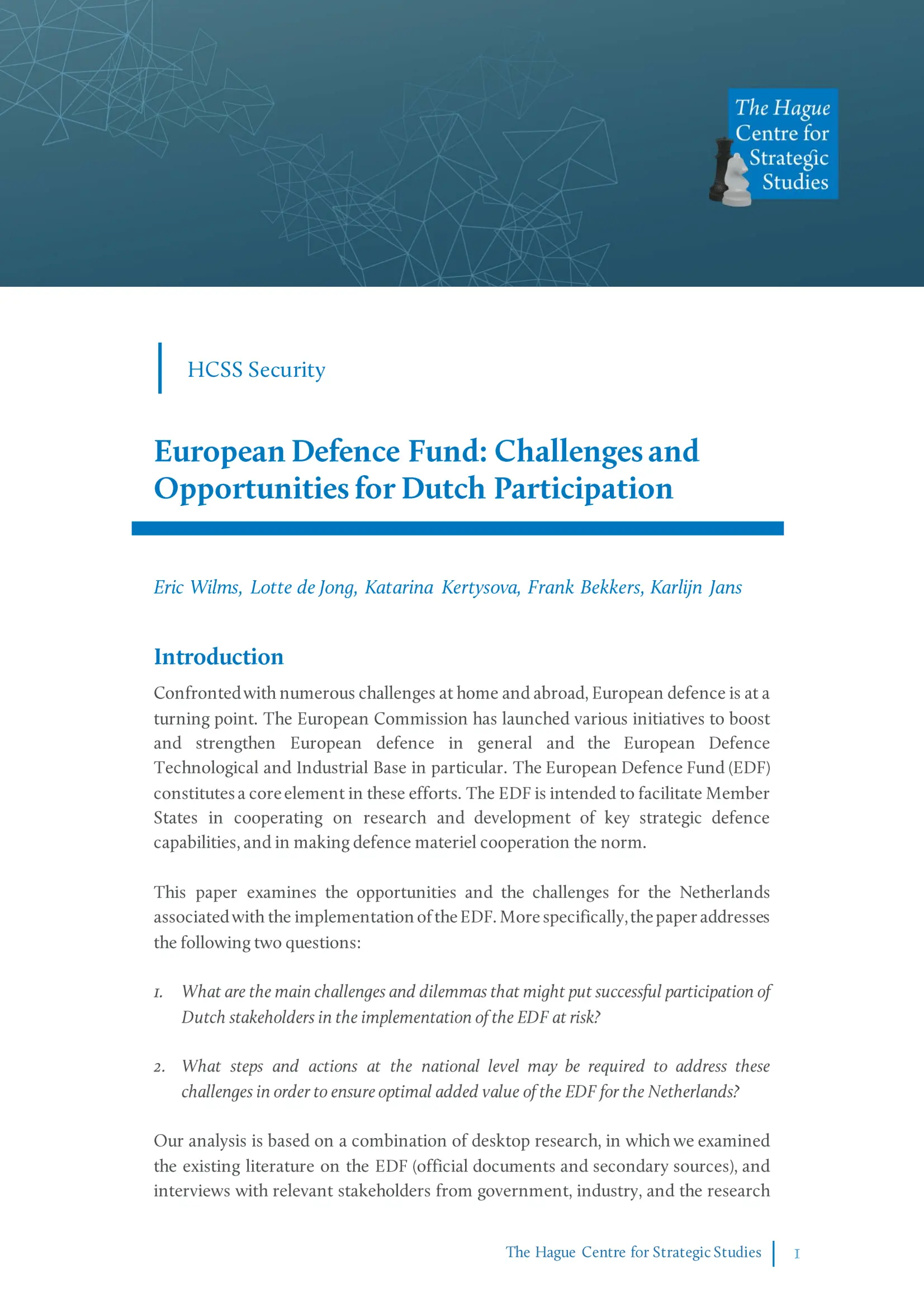Seminar Europadag Het Europese grondstoffenbeleid
Michel Rademaker van het Den Haag Centrum voor Strategische Studies (HCSS) is één van de sprekers op het ‘Seminar Europadag: Het Europese grondstoffenbeleid’
Doel van het seminar is om met experts van gedachten te wisselen over de toekomst van het Europees grondstoffenbeleid. Dit mede naar aanleiding van de Commissiemededeling over grondstoffen van februari en de interdepartementale grondstoffennotitie die op dit moment word opgesteld. In het seminar zal de vraag centraal staan in hoeverre een gemeenschappelijk Europees beleid noodzakelijk is en hoe het Europese beleid eruit zou moeten zien.
Sprekers:
- Henriëtte van Eijl (Europese Commissie – DG Ondernemingen en Industrie)
- Judith Merkies (Europarlementariër namens de PvdA)
- Michel Rademaker (Plv. directeur – The Hague Centre for Strategic Studies (HCSS))
- Freek van Eijk (Directeur Strategie en Public Affairs – Afvalverwerker Sita-Suez)
De Debatleider is Jaime de Bourbon de Parme (Speciale Vertegenwoordiger voor Natuurlijke Grondstoffen – Ministerie van Buitenlandse Zaken)
Locatie: Het Ministerie van Economische Zaken, Landbouw en Innovatie, Bezuidenhoutseweg 30 te Den Haag.
Datum: 9 mei
Tijdstip: 15:00 uur – 17:00 uur.
Het Europese grondstoffenbeleid
De laatste jaren blijkt steeds duidelijker dat grondstoffen schaarser worden, wat zich onder andere uit in meer volatiliteit op grondstoffenmarkten. Gezien het belang van grondstoffen voor de economie is de beschikbaarheid van grondstoffen de laatste jaren daardoor steeds meer ook in de politieke belangstelling komen te staan. Vanuit de EU resulteerde dit o.a. in 2008 in een grondstoffeninitiatief. Begin februari van dit jaar kwam zij met de mededeling ‘grondstoffen en grondstoffenmarkten: uitdagingen en oplossingen’.
In het seminar over grondstoffen willen wij de problematiek vanuit het Europese perspectief bespreken. De vraag die daarbij centraal staat is in hoeverre een gemeenschappelijk Europees beleid noodzakelijk is en hoe het Europese beleid eruit zou moeten zien.
Bij deze vraag willen we graag stilstaan bij de volgende aspecten van een Europees grondstoffenbeleid:
- Voorzieningszekerheid. Hoe kwetsbaar is Europa nu werkelijk?
- Internationale handelsstromen. Hoe kan de EU een actieve grondstoffendiplomatie voeren? Hoe kan de dialoog met strategische partners (VS, China, WTO, G20…) worden vormgegeven en handelsbelemmeringen worden opgeheven?
- Financiële markten. Welke rol –en hoe- moet de EU spelen ten aanzien van de financiële markten? (betere informatievoorziening, meer transparantie op grondstofmarkten)
- Transparantie en MVO. Hoe kan de EU transparantie van grondstofketens vergroten en het Maatschappelijk Verantwoord Ondernemen bevorderen?
- Geopolitiek. Hoe kan de EU zich aanpassen aan het veranderende machtsevenwicht in de wereld? Moet de EU daarbij het multilaterale systeem blijven versterken of meegaan in de trend van bilaterale deals, afspraken en weinig transparante maar strategische acquisitie?
- Rapportageverplichtingen. Wat is de verantwoordelijkheid van de EU in de band tussen grondstofdelving en financiering van gewapende conflicten (bijvoorbeeld in de Democratische Republiek Congo). Is de Europese versie van de Amerikaanse Dodd/ Frank-wetgeving het antwoord?
- Recycling. Wat kan de EU doen om recycling te bevorderen? Is er een herziening nodig van de Europese afvalwetgeving?
- Innovatie: Welke rol moet het thema grondstoffen spelen in het Europese innovatiebeleid (voor zuiniger gebruik en recycling)? Is daar plaats voor Nederlandse expertise?





